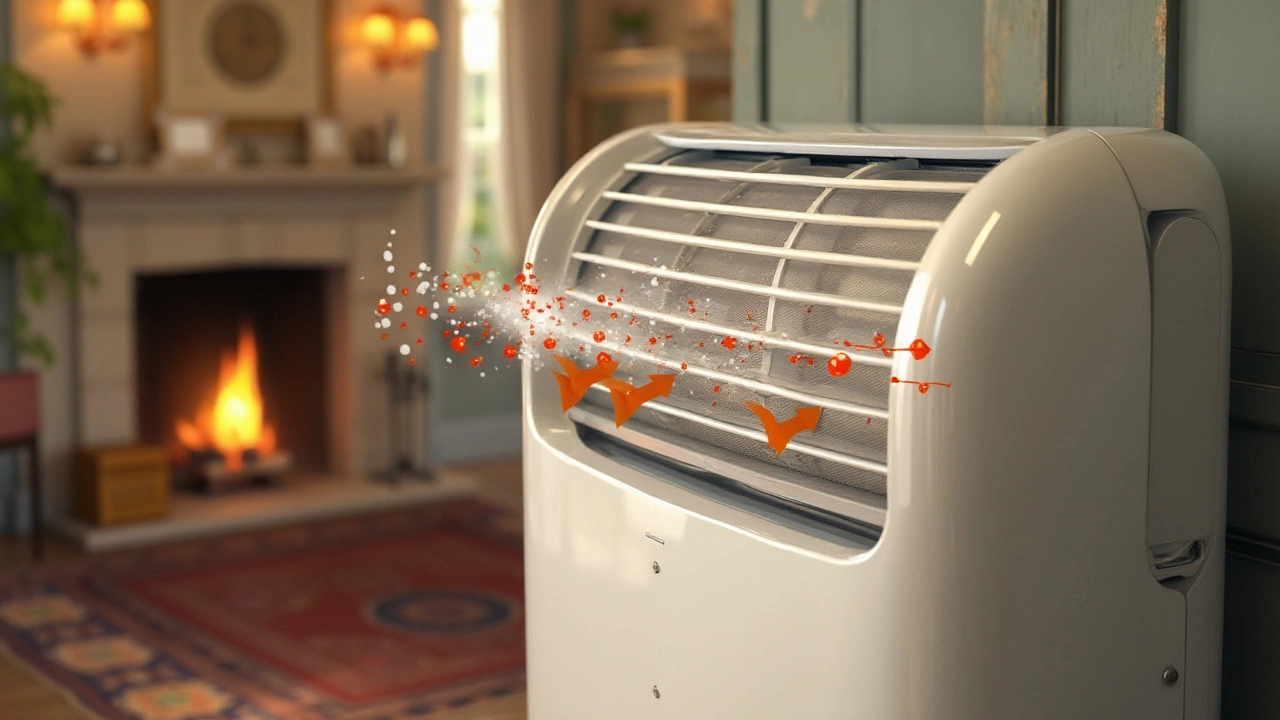MERV 13: What It Means for Your Car and Home Air Filters
When working with MERV 13, a Minimum Efficiency Reporting Value that rates how well a filter captures particles of different sizes. Also known as MERV rating 13, it sits near the top of the residential and automotive filter scale, balancing high filtration efficiency with acceptable airflow. In everyday terms, a MERV 13 filter can trap up to 90% of particles as small as 0.3 microns – think pollen, mold spores, and fine dust. That level of capture makes a big difference for anyone who spends a lot of time in a vehicle or a home where the HVAC system runs constantly. Below we’ll walk through the key pieces that tie into a MERV 13 filter and why you should care about each of them.
Air Filter: The First Line of Defense
The air filter, a replaceable component that removes contaminants from the air entering a vehicle’s cabin or a building’s ventilation system is the direct recipient of a MERV rating. A higher rating means the filter’s mesh is finer, so more particles get caught before they reach occupants. For cars, the cabin air filter protects the HVAC blower, prevents unpleasant odors, and keeps the interior air healthier. In a typical family sedan, a MERV 13 filter will stop most pollen and a large share of traffic‑related soot, which translates to fewer sneezes and less dust on the dashboard. However, tighter filtration also means a bit more resistance, so you’ll want to check the vehicle’s manual to ensure the blower can handle the pressure drop without sacrificing comfort.
Choosing the right air filter requires matching the MERV rating to the vehicle’s HVAC system, the heating, ventilation, and air‑conditioning network that moves and conditions air inside a car or building. The system’s fan speed and duct design dictate how much airflow loss it can tolerate. A MERV 13 filter in a compact city car may cause the fan to work harder, potentially affecting fuel efficiency, while the same filter in a larger SUV with a robust blower usually poses no issue. This relationship—MERV 13 encompasses filtration efficiency, which requires proper HVAC capacity—helps you avoid a scenario where a filter looks great on paper but throttles performance in real life.
Another practical angle is maintenance frequency. Because MERV 13 captures more particles, it clogs faster than a lower‑rated filter. Most manufacturers suggest swapping it every 12,000 to 15,000 miles, or about once a year for most drivers. Ignoring this schedule can lead to reduced airflow, higher engine load, and even premature wear on the HVAC blower motor. So, when you hear a drop in cabin airflow or notice the AC taking longer to cool, it’s often the filter telling you it’s time for a change.
Indoor Air Quality: Why It Matters for Drivers and Homeowners
The ultimate goal of any filter is to improve indoor air quality, the condition of the air inside a vehicle’s cabin or a building, measured by the presence of pollutants, allergens, and moisture. A MERV 13 filter directly lifts that quality by cutting out most airborne irritants. For people with asthma or seasonal allergies, the difference between a standard filter and a MERV 13 can be the difference between smooth breathing and constant coughing during a commute. In a home, the same filter reduces the load on respiratory systems and can even lessen the spread of viruses by catching tiny droplets.
Health benefits aside, better indoor air quality also protects equipment. Less dust means fewer particles settling on electronic components in your car’s infotainment system or on the coils of a home air‑conditioning unit. Over time, that translates to longer component life and fewer unexpected breakdowns. In short, MERV 13 influences indoor air quality, which in turn supports both occupant health and mechanical reliability.
When you layer all these pieces together—air filter, HVAC system, and indoor air quality—you see a clear picture: a well‑chosen MERV 13 filter can boost comfort, protect health, and keep your vehicle or home running smoother. Below you’ll find a curated set of articles that dig deeper into each of these topics, from how to pick the perfect filter for your car to the science behind filtration efficiency and real‑world cost considerations. MERV 13 isn’t just a number; it’s a practical tool that, when used correctly, makes every drive and every breath a little cleaner.

Will a MERV 13 Filter Harm Your AC? Let's Dive Into the Details
Feb 4 2025 / Air FiltersHomeowners often wonder if upgrading to a MERV 13 filter might hurt their AC systems. While these filters are excellent at trapping airborne particles, they may reduce airflow, potentially taxing your system. However, with proper understanding and regular maintenance, a MERV 13 filter can offer superior air quality without detrimental effects. Explore the potential impact and learn how to optimize your AC for this high-efficiency filter.
VIEW MORE